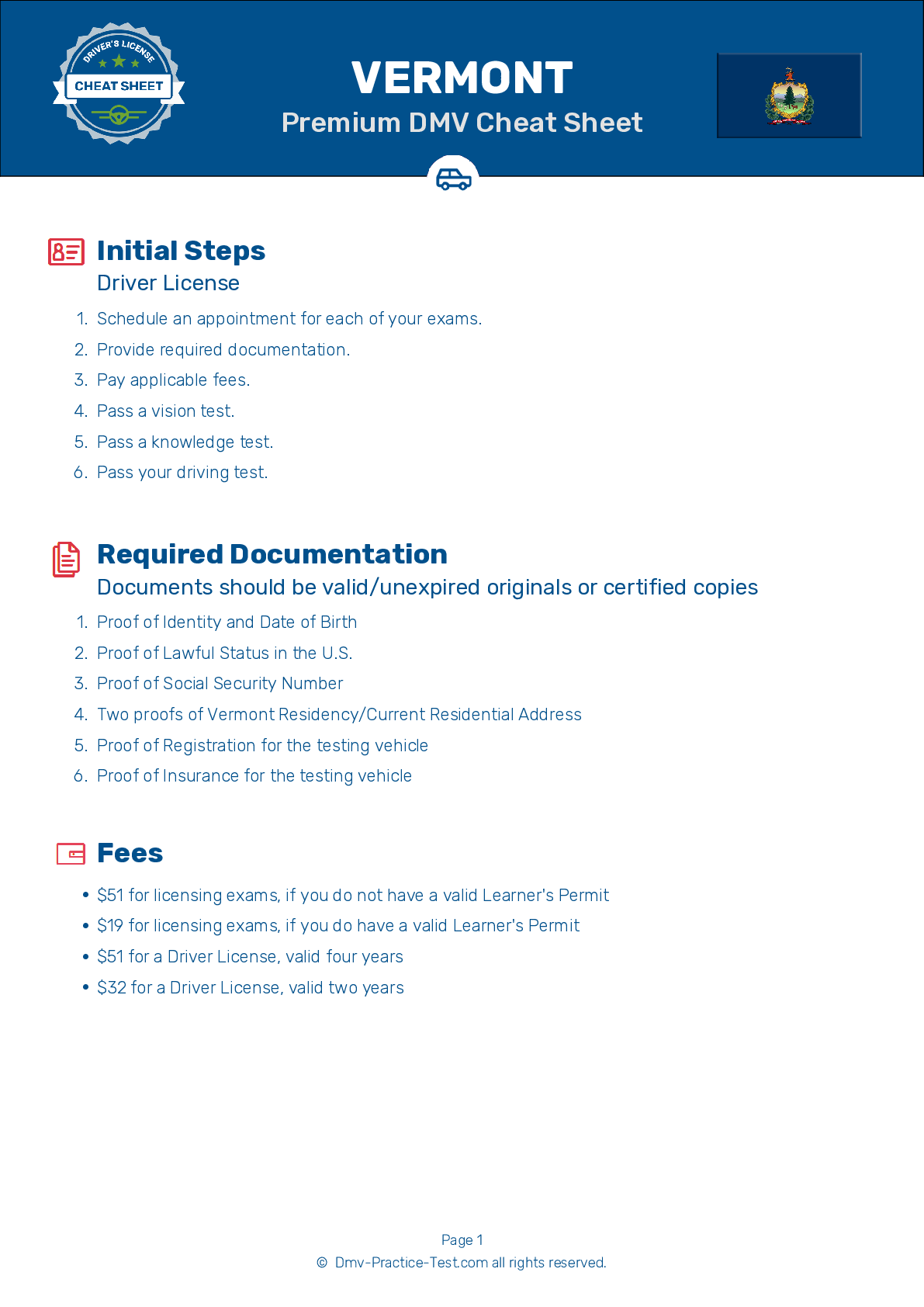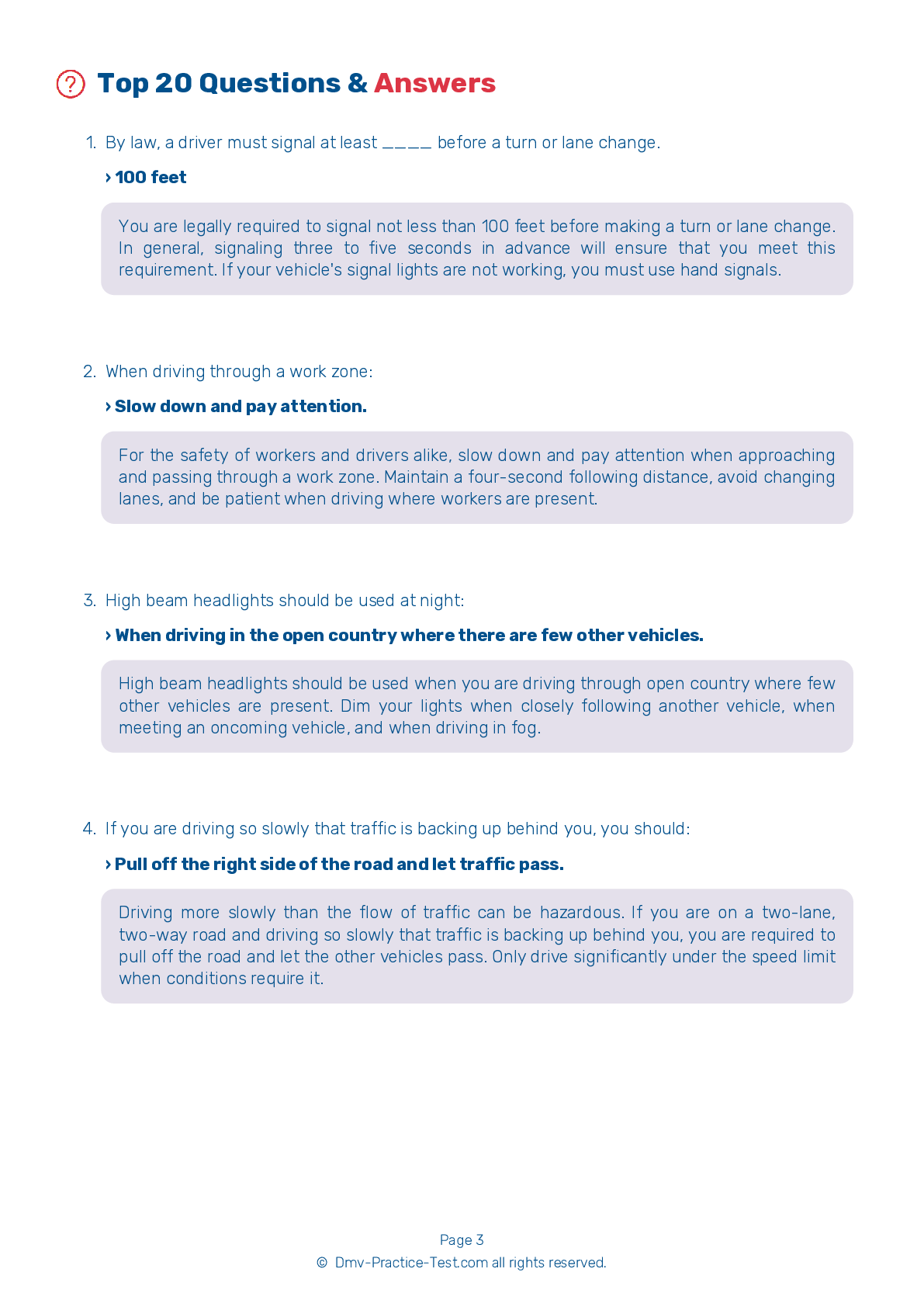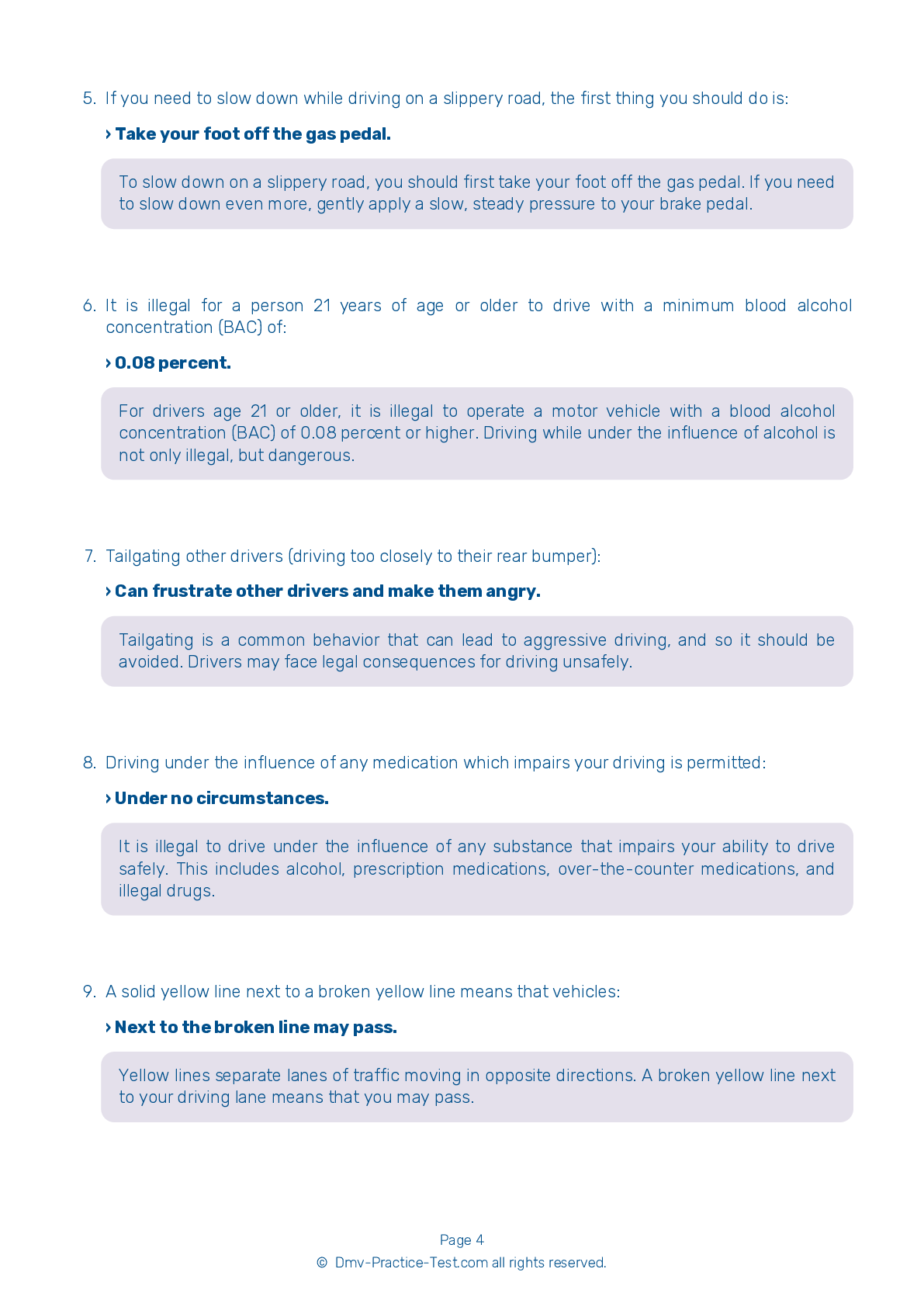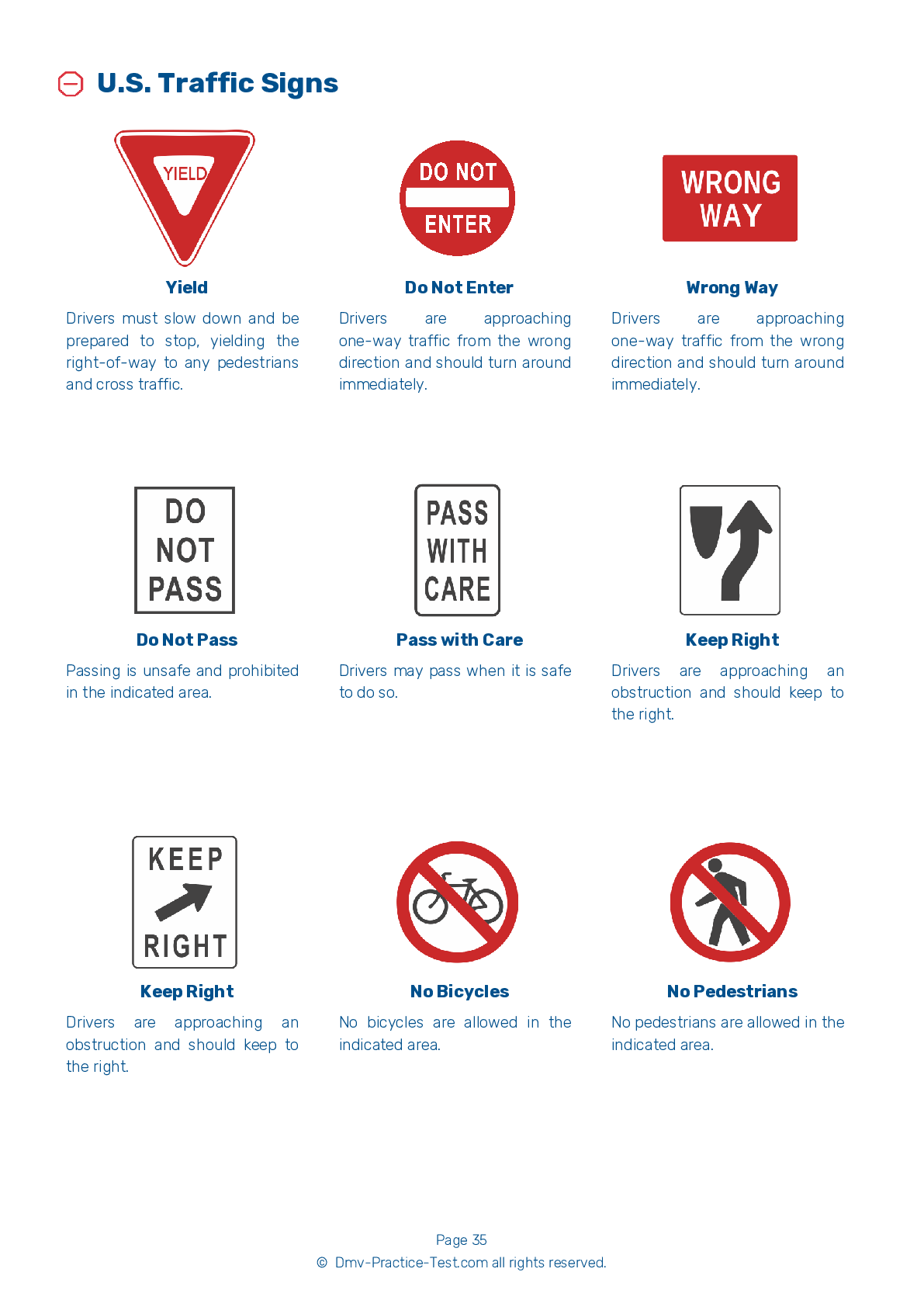FREE Vermont DMV Practice Test #3 Page 3 of 3
The Vermont DMV practise examinations have been updated for January 2025. It includes questions based on the Vermont Driver Handbook's most significant traffic signals and legislation for 2025. Use actual questions that are very similar (often identical!) to the DMV driving permit test and driver's licence exam to study for the DMV driving permit test and driver's licence exam.
On the practise exam, each question gets a tip and explanation to help you remember the concepts. The written component of the official Vermont DMV test will include questions about traffic rules, traffic signs, and driving statutes, as well as knowledge from the Driver Handbook.
To obtain a passing grade, you must correctly answer 16 of the 20 questions. Use the practise exam provided by the Vermont Department of Motor Vehicles to help you prepare for your instruction permit or driver's licence.
The DMV exam is available in several languages.
Using any kind of testing assistance will result in an automatic fail, and the DMV may take additional action against your driver's licence, so stay away from it.
14 . When two vehicles enter an intersection from different highways at the same time, which vehicle must yield the right-of-way?
At intersections that are controlled by signs or signals and at intersections that are uncontrolled, the driver on the left must yield the right-of-way to the driver on the right when two vehicles arrive to the intersection at the same time.
15 . At a light rail intersection, always:
You should never drive around lowered crossing gates. Always look both ways before turning across train tracks and always obey signs and traffic signals. Trains share the road with motor vehicles and bicyclists.
16 . When you see other drivers around you acting or reacting in anger:
When other drivers are behaving angrily, you should take action to physically and mentally distance yourself from the situation. Avoid making eye contact with them, or making body movements or gestures that could provoke them. Slow down, move over, or do whatever you safely can to put yourself out of danger.
17 . Round signs indicate:
Round signs warn drivers of an upcoming railroad crossing area. Drivers should use extra caution when approaching a railroad crossing.
18 . An "End school zone" sign indicates:
Do not exceed the school zone speed limit during indicated times. The end of a reduced speed school zone will be indicated by an "End school zone" regulatory sign.
19 . You may not cross a single broken white or yellow line:
You may cross a single broken line to pass or change lanes as long as you can do so safely and without interfering with traffic.
20 . A person's ability to drive can be impaired by:
The ability to drive safely is dependent on the driver being in good physical condition. Driving can be impaired by alcohol, legal and illegal drugs, and being drowsy.
Need Car Insurance? No problem!
Compare the best rates in Vermont and find a personalized policy that meets your needs.
1. Are You Currently insured ?
2. Married ?
3. Do you own your Home?
4. Do you have more than 1 car ?
5. Have you or a Family Member Honorably Served in U.S. Military ?
6. Your Name
7. Age
8. Zip code
IMPORTANT REMINDER:Auto Insurance is Mandatory to drive in Vermont. Get covered before you hit the road to avoid any fines.
Ranked by best match
2025 Vermont | Frequently Asked Questions
1. Not checking mirrors and blind spots before changing lanes or turning.
2. Speeding or driving too slowly for the conditions or posted speed limit.
3. Not coming to a complete stop at stop signs or red lights.
4. Incorrect signalling or not signalling at all.
5. Poor parking, especially parallel parking.
Remember, practice makes perfect, so take time to hone your skills.



